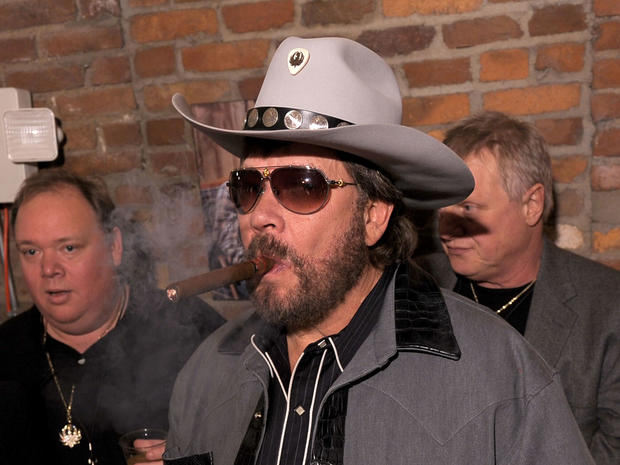Hank Williams Jr. for president: A short primer on sports, politics, and (un)popular culture
When country singer, Hank Williams Jr., compared President Obama to Hitler, he did his country a great service by making explicit just how far we have fallen. But Mr. Williams' comments have little to do with our nation state's efforts to rebuild our economy, ameliorate the stifling bipartisanship, or document the Obama presidency-to-date. No, when Fox News asked the singer to weigh in on a very complicated and emerging political climate, they prompted a debased rhetoric that, in the mind of some media pundits, elevated the normative room temperature milieu of Fox News. In other words, when co-anchor, Gretchen Carlson stated "I just want to say we disavow any of those analogies he made,"Fox News, for that moment in time, appeared fair and balanced.
But what is intriguing beyond the polemics of media ideology is just how sports got mixed up in all this. The most defensible argument is that sports and politics are always and already connected to political structures. From the Roman Republic's use of panem et circenses (bread and circuses) to our post 9/11 MLB 7th inning stretch anthem-of-choice to our pervasive fascination with medal counts at the Olympic Games, sport has been used for, by, and with structures of power. Ask how one of our most popular presidents in recent history was partially elected based on skills attained while playing a football star?
But what is most interesting, is how through popular culture, sports and politics are increasingly linked at the level of metaphor. You can't dismiss Williams' comments as "only an analog" because that's how we communicate. President Obama supports his decision not to display the body of Osama bin Laden by claiming "we don't need to spike the football." Congressional speeches are rife with sport references such as "it will be a game-changer", "we have to carry it all the way into the end zone," and "who dares sack our quarterback...I vote for the long bomb." Certainly, sport metaphors are as powerfully useful in senatorial debate as they are in backing up a bar bet.
So, when Hank Williams Jr. spits out an alarming and destructive analog that has him removed from the Monday Night Football lineup, why should we be surprised? We have allowed a game to be regularly analogized with conflicts of mortal stakes. We ask (and even respect) under-informed artists for their opinions on issues of national concern. Pseudo-candidates create sport-related identities that the Everyman can relate to (read: "just a hockey mom").
And when examples of real discriminatory behavior are seen in and through the commercial sports arena, do we really pay attention? So, before we offer kudos to Fox News for calling out Williams' offensive remarks, cannot we ask why co-host Carlson, in response to Williams' sexist comment, "I'd rather be there looking at Gretchen," she only answered, "good morning to you too"?
The interdependency of sport and politics is as complete as sport and society. But our level of engagement and trust can do better than relying on very good artists/entertainers to take our national pulse.
Scott Tinley, a retired professional triathlete and two-time Ironman World Champion, writes about fallen heroes and teaches sport humanities courses at San Diego State University. His book Racing the Sunset: An Athlete's Quest for Life After Sport explores the world of pro athletes in transition.
